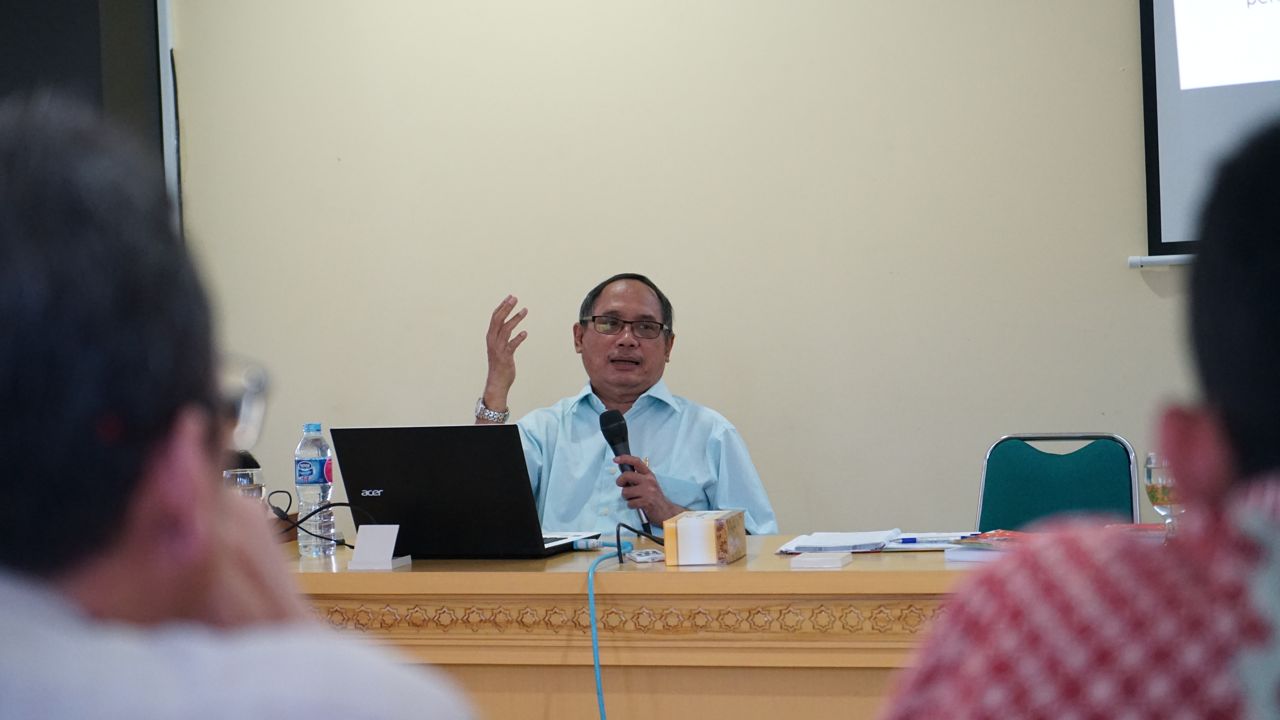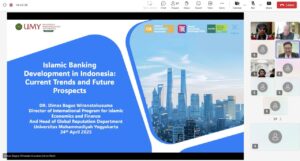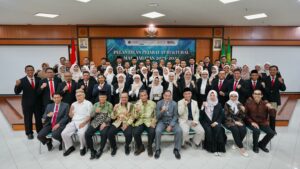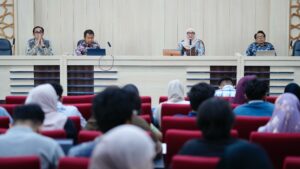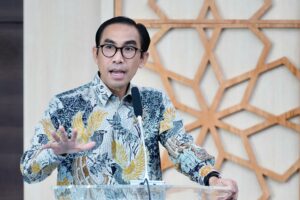Since the end of the Cold War, many analyses stated that the United States against the Soviet Union suffered a setback. For one reason, the United States did not show a lot of creativity and innovation in establishing international relations. The circumstance was an occasion for other parties, such as the People’s Republic of China (PRC), to take a role in global power.
At a discussion and book review entitled ‘Strategi Cina Merebut Status Superpower’ (Strategies of China to Be a Superpower) organized by Master of International Relations of Universitas Muhammadiyah Yogyakarta (UMY) on Thursday (27/9) at Building of Kasman Singodimedjo of UMY, Ptof. Dr. Bambang Cipto, M.A. The PRC is a country which has rapidly developed and called as a potential superpower.
Bambang, who is an author of the book declared that after the Cold War, the United States faced stagnation in thinking and only could last in an old order. “The United States could only maintain a superiority of the West through achieving intellectual ambitions by Samuel Huntington proposing a hypothesis of the Clash of Civilizations. The condition has led the United States to wars in the Middle East that there were a lot of humanity tragedies which the United States did not dare to claim as the mastermind,” asserted Bambang.
The situation, then, was utilized by the PRC to develop. “In the era of Deng Xiaoping, the PRC focused on its national development and did not interfere international affairs. Indeed, Xiaoping required President Jimmy Carter to increase the number of students to go to the United States because Xiaoping recognized that the students were future generations to foster the PRC. The condition was carried out till the era of Hu Jianto, and now Xi Jinping declared that the PRC would become a developed strong modern socialist country in 2050,” emphasized Bambang.
To achieve the goal, the PRC applied various strategies in many aspects from economy to foreign policy. “In an economic realm, the PRC implemented a state own enterprise entirely supported by the government so that the country could pass a crisis in 2008. In fact, the PRC had successfully transformed from an imitator to an innovator through leveraging sophisticated artificial intelligence technology. The PRC has also become the greatest e-commerce in the world due to technology development and support of government,” he maintained.
“In an educational area, Chinese higher education institutions are leading in research and included in top 500 universities in the world. Meanwhile, in foreign policy, the PRC concerns with interests in interweaving mutual relations with other countries. For instance, the PRC initiated to build a one belt one road. This notion is against a Western paradigm prioritizing a military approach and Western values. The idea has driven domination of the West threatened and the United States attempts to hamper the establishment,” explained Bambang.
Nevertheless, the PRC also possesses dark sides as mentioned by the other discussion speaker Jatmika, M.Si. “The world criticized the PRC several times, particularly dealing with humanity issues such as one-child policy and an alleged violation of humanity to Muslims in Uighur. Besides, environmental issues also a threat of globally sustainable development,” he conveyed.
